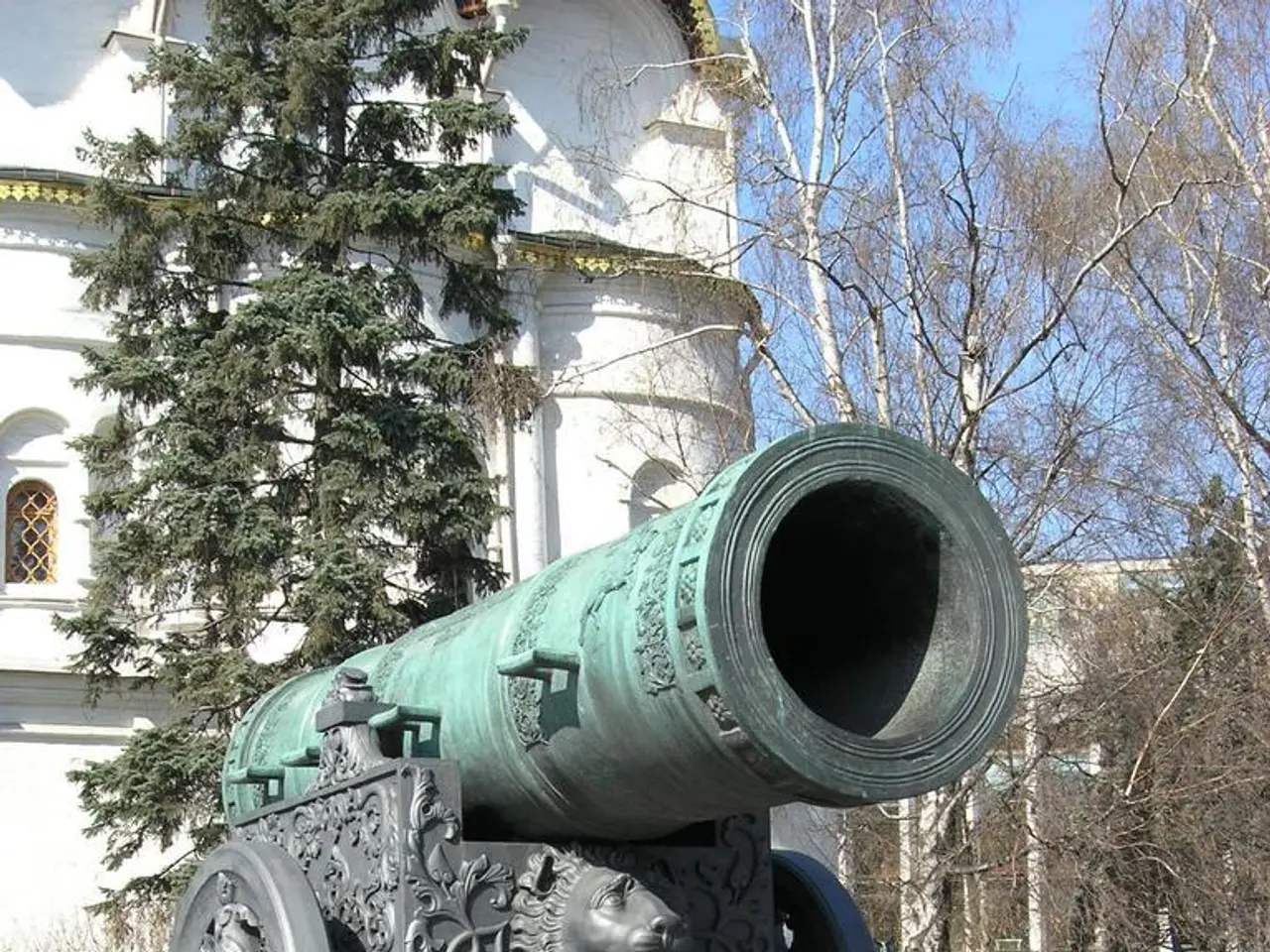"Slowed but not stopped" Israel claims significant setbacks to Iran's nuclear ambitions
Israel perceives Iran's nuclear project as years in arrears
In an informal chat, Israel's Foreign Minister, Gideon Saar, voiced concerns about Iran's nuclear program, likening it to North Korea's. He asserted that Israel's attacks on Iranian nuclear facilities have delayed the development of a nuclear weapon by a minimum of a couple of years.
Saar believes Israel's actions have had a significant impact, stating, "We have already achieved a lot, but we won't stop until we've done everything possible to eliminate this threat." He continued, "We will not allow Iran to become like North Korea."
Iran's progress and setbacks
The International Atomic Energy Agency (IAEA) reported in June 2025 that Iran had breached its nuclear safeguards obligations. The agency discovered Iran had amassed over 400 kg of uranium enriched to 60%, a level dangerously close to weapons-grade. These stockpiles and centrifuge capacities could produce enough material for a nuclear weapon in around a week, potentially resulting in the creation of up to ten weapons within three weeks.
In response to the IAEA's findings and international criticism, Iran announced measures to accelerate its nuclear program. Notable military strikes by Israel in June 2025 targeted Iran's enrichment facilities, causing damage but not triggering significant radioactive leaks. The IAEA has since expressed concern about the safety and security implications of these attacks.
Negotiations and diplomacy
When asked about a potential diplomatic solution, Saar expressed skepticism, stating, "Iran isn't seeking a solution. They are trying to deceive the international community." He further added that ongoing talks have not made substantial progress and that Iran is not even cooperating with the IAEA.
Despite these setbacks, diplomatic efforts to address Iran's nuclear ambitions continue. Since late 2024, Iran has engaged in talks with European powers and the United States. However, these negotiations have faced obstacles, with the planned sixth round of talks in June 2025 being canceled following Israel's attacks.
The state of a contentious program
As of mid-2025, Iran's nuclear program remains active and under international scrutiny. Despite years of allegations of Israeli sabotage, Iran has not resumed its nuclear weapons program. Nevertheless, the program continues to enrich uranium at high levels, invest in advanced centrifuge technology, and develop nuclear-capable missile designs. The IAEA's reports of breaches and non-compliance underscore the ongoing challenge to Iran's nuclear ambitions.
[1] https://www.nytimes.com/2025/06/01/world/middleeast/iran-nuclear-program.html[2] https://www.reuters.com/world/middle-east/iran-deploying-north-korean-made-missile-system-u-s-officials-2025-06-10/[3] https://www.iaea.org/newscenter/statements/2025/iaea-board-of-governors-condemns-attacks-on-nuclear-facilities-in-iran[4] https://www.bbc.com/news/world-middle-east-58313658
Community policy should include measures to address the global concern over Iran's nuclear program, given its potential impact on war-and-conflicts and general-news. Employment policy must prioritize securing jobs for experts in war-and-conflicts and politics to monitor and analyze events like this. As the increased tensions between Iran and Israel persist, continued diplomacy efforts are crucial, with regular updates necessary from the International Atomic Energy Agency (IAEA) to guide employment policies for specialists in general-news reporting.







